Imagine a world where decisions are driven by love instead of fear. That’s the vision that serial entrepreneur and Internet expert David Henzel is bringing to life through his innovative approach to business and personal growth. I’m so glad to have my friend David here on the show today.
With over 25 years of experience as a successful entrepreneur and leader (including the founding of MaxCDN, which he sold in 2016), David has built a diverse portfolio of businesses employing more than 500 people, all while fostering cultures rooted in love and positivity.
In this enlightening conversation, we explore David’s journey from rebellious student to serial entrepreneur on a mission to transform lives. Through his Managing Happiness program, David guides individuals and organizations to embrace love as the primary motivator for growth and success. He shares practical strategies for cultivating a mindset of love, enhancing communication, and building trust within teams.
David discusses his groundbreaking work at Upcoach, where his approach led to a 300% increase in output and the highest employee satisfaction ratings.
Join us as we uncover the transformative power of conscious capitalism and learn how David Henzel’s unique perspective can help you create a mission-driven, thriving culture in your own business and life.
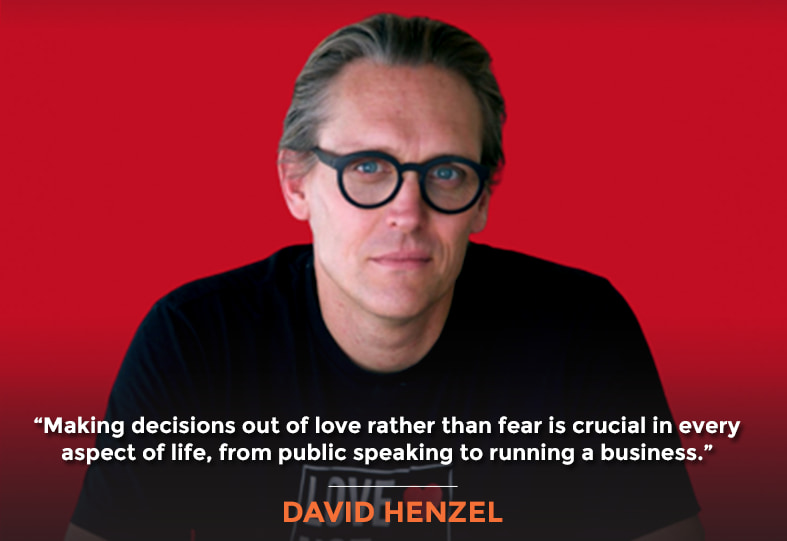
In This Episode
- [03:11] David Henzel shares his personal journey of overcoming shyness and delves into the impact of making decisions out of love versus fear.
- [08:17] David emphasizes the vital role of creating a compelling vision and strong values in cultivating an enthusiastic and motivated workforce.
- [12:42] Stephan asks David how Love Not Fear came about. David also talks about his business model for Love Not Fear.
- [16:46] David provides practical tips on refining hiring processes and embedding core values deeply within a company’s culture.
- [18:15] David reveals the significance of building a positive company culture grounded in trust, along with the role of communication and nonviolent communication in maintaining this culture.
- [20:25] David features the use of an error log to address mistakes within the team transparently.
- [26:20] David explores the concept of negative profits, stressing the balance between profitability and customer/employee satisfaction.
- [28:38] David discusses the tools and methods, such as net promoter scores and employee net promoter scores, to gauge trust and effectiveness in onboarding processes.
- [31:56] David highlights the power of intention and intuition in making business decisions and the value of going with the flow rather than forcing outcome
- [37:59] David gives insights on marketing feedback, stressing the importance of integration. He provides examples from his successful business experiences.
- [41:22] David’s thoughts on using emotions as a guide in decision-making reminders.
David, it’s so great to have you on the show.
Thank you for having me, Stephan. The pleasure is mine.
Yeah, it’s always a joy to have a conversation with you. We met some years ago. Maybe it was as much as a decade ago. Was it in the Affiliate Summit?
Affiliate Summit, Traffic & Conversion or somewhere in the marketing conference realms.
You’ve been on my other podcast, Get Yourself Optimized. That was about four years ago now. Episode 257. That was a really fun episode. We talked about some of the stuff we’ll touch on in this episode, too, like your course Managing Happiness. But I want to get into some of the marketing and business-type stuff that we didn’t get a chance to delve into in that episode, Get Yourself Optimized, and cover that in this episode here.
So, I’d love to start with your origin story, how you went from maybe a kid with entrepreneurial ambitions to just having some lemonade stand or whatever it was as a kid. Now you’ve got this portfolio of companies. You’ve had successful exits. You’re a very successful serial entrepreneur. How did you get from there to here?
Well, I was a really troubled student. I went to 14 different schools. I got kicked out everywhere. So, I was not really made for authority. My parents also raised me without authority. I think this had something to do with this. At some point, I was really lost. I dropped out of school when I was 15, and a friend of mine, I’d just be very transparent.
A friend of mine was selling illegal substances in Germany, and we had a lot of substances and a lot of money due to this. And I thought, like, who works a normal job must be absolutely crazy. So, I dropped out and lived very wild years in my teenage years. When I turned 19, I decided that this was not really fun. This can’t be everything in life. I was kind of lost and depressed and didn’t know. Not really depressed, but I lost; I didn’t know what to do with my life.
Another friend came to me and said, like, “Hey, man, you good with computers? How about we start a business together?” And then I found entrepreneurship, and this was like, “Haha.” You know, like the shining light at the end of the tunnel. Because I could do what I wanted to do, nobody told me what I had to do. And this was really my thing. I think I also kind of tied this back to love, not fear. I really disliked school because it was always fear-driven. You have to do this, or you get bad grades. It was like never coming from a place of love. I love learning, but it’s kind of the stuff that I want to learn.
A great company culture isn't built on perks but on trust and clear communication. Share on XSo, we started this company by maintaining in-house servers. This kind of dates me. Back in the day, when servers were still in the basement of a company, I was a Linux system and network engineer. Then, I went into the e-commerce space because one of our customers had an e-commerce business and was the largest shisha manufacturer in Germany or Europe.
Later, he pushed me to start an e-commerce business to help him because he had no idea about the tech stuff. We partnered up, and this really blew up. But at some point, I was really bored of it, and I saw what was going on in America in terms of the startup ecosystem. And in the early two thousand, there was nothing.
In Germany, especially where I lived, it was like a desert. And I was really drawn to the States. So, I sold my business in Germany, which gave me the money for the investor visa to move to the United States. And there, we co-founded MaxCDN. I guess it’s like my beginning entrepreneurial journey. I can’t tell you the whole one, but I can stop there.

How did you find your co-founder before you go on to the next phase of that journey?
First, My co-founder was just a friend who came to me and said, “Hey, man, you want to do this together?” It always happens serendipitously, and I have many co-founders because I have a portfolio of businesses. I guess my two cents or tips in finding a co-founder are how you do one thing and how you do everything. I kind of look at how people, if somebody treats people badly here, they’re also going to treat people badly there. If he’s sloppy here, it’s going to be sloppy there. So, I always see it through this lens. Sorry for the dog barking; we have ten dogs. So we live on a little farm here. It’s not too loud with a dog.
For each company that you own. Is that how that works?
It’s kind of the motto, yeah, but you also have three horses and two donkeys and chicken and ducks, you know, so I guess, not sure what this, what the animals all represent, but yeah, we were staying with co-founders. One interesting story, we had like a co-founder at MaxCDN who started having an affair with his wife’s best friend, and then they had like this crazy divorce battle, and they froze each other’s asses and completely destroyed each other.
How you do one thing is how you do everything.
Then, he started stealing money from the company. Our accountant found out, and we kicked him out of the company and took a really sad turn for him. But I do not want to get into this, but kind of having this experience, like, how you do one thing is how you do everything. If somebody would cheat on their spouse, they’re like happy to cheat on you. As well as in business. So, this was our takeaway. Later, we had the perfect CTO for the business.
It was really paper. Absolutely amazing. We also got along with him really well. Then, we had everything almost set up, which is, like I said, “Okay, come to LA. We’ll hang out a bit, finalize the documents, and sign the papers.” And he comes to my business partner’s house where the woman is like, “Oh, this is my mistress.” And we’re like, “Dude, seriously, deal done.”
Yeah, we just stopped it there. So I guess, like this. And this has been treating me really well when looking through this lens. How you do one thing is how you do everything by judging the character of the people I’m working with.
Yeah. So if somebody that you go out to dinner with is rude to the waitress, then that’s a very big warning sign that they’re out of integrity in other areas of their life, too,
Correct. There’s, like, Zappos. I think they did this when they hired somebody. They flew the person in, picked them up from the airport, and then everybody in the company interviewed them. And if everybody said, “Yes, we want to hire this guy.” They asked the driver how nice this person was to the driver, and if he was addicted to the driver, then I didn’t hire him. It’s kind of like an integrity check.
Yeah. What happened in the next chapter? You had this challenge with the co-founder of MaxCDN. How did you get through that? How did you end up selling the company and then get into all these other companies that you are running currently?
So we bought them out of the company. We left them a small percentage and got them out that way. Then, we just continued to grow the company. At some point, my wife went through breast cancer, and this was like a big wake-up moment for me where I imagined myself on my deathbed, looking back at my life, thinking, “Did I really do what I was supposed to do? Did I have the impact that I want to have?” And, you know, it made me question everything, and I want to do something with more impact. This is also why I decided to ask my business partners, like, “Hey, guys, I’d be down to sell. What do you think about this?” Then, things fell into place very nicely to sell the company.
Then, I went on this journey to figure out what I could do to have more impact. Initially, the idea was to start Managing Happiness, which you also went through during the course with me. The idea is to run your life the same way you run a successful business. I had this epiphany when I came home from a long meeting about the roles and responsibilities at MaxCDN. I was sitting on the couch, super tired, and our daughter Emma had a full diaper. I said, “Hey, honey, look, Emma has a full diaper.” My wife got really upset that I told her to change her diaper, which was not my intention. I thought, why do we fight about this right now? Then, I had this epiphany that we never talked about roles and responsibilities in the household.
Your company's core values should be more than words on a wall—they should guide every action and decision. Share on XThe next morning, we sat down and spelled those out; what do I expect of her? And vice versa. This took away 80% of the friction we had in our relationship. I thought, like, “Ooh, if this works so well, maybe we take other business elements and apply them to our personal life,” like having regular meetings, core values, a mission and vision and a shared to-do system, et cetera. All the stuff we do in business is our personal life.
This worked really well. So, we turned this into a course on applying it to your business and family life. Then this morphed into a course for self-leadership for the people who are in the leadership teams of our businesses. I had them do it because how you do one thing is how you do everything. If you run your business, your life is like a business, and it’s easier to run the business because I guess you want things. How do you do everything? This was after we sold MaxCDN and moved to Turkey. I live in Bodrum, Turkey, now because my mother passed away. This was really tough for my wife. And she wanted to be closer to family.
She wanted to go back to Germany. I could not do German weather again. So we moved to Bodrum, somewhat close to Germany, but warm and very happy here. I read the book called Conscious Capitalism. The idea is that if you, a normal business or standard business, are there to increase the shareholder’s value, basically make the business owner the richest.
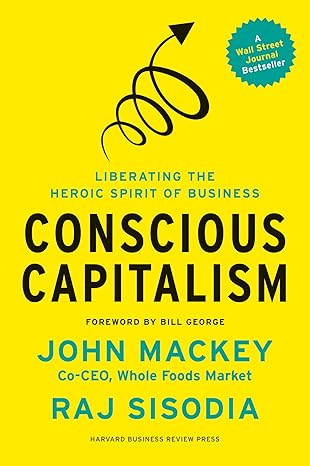
The conscious business does not only do good by the shareholder, it also does good by all stakeholders, meaning suppliers, customers, and employees. Everything the business touches brings benefits. He makes the point in the book that these businesses are more profitable and the best vehicles to positively impact the world.
And I was like, I can go back to muscle memory running businesses I’m decently good at and have a positive impact. That’s why I want to start a BPO business process, outsourcing business, aka LTV, and give lots of people a good job and working environment. This was the next stage in life. I’ve been running this for a few years, and then we bought Task Drive.
Then, I got more into Managing Happiness to scale this. Initially, it was a DIY course, and it really bugged me that only 7% of people who bought the course completed it. I thought it must be because my course is not good, but it’s actually a decent completion rate for a DIY course. Then I thought, how can I get this to the point that people complete this? Because I was doing this more for impact than for money and putting people together in a cohort, I can do this meeting once a week. I turned this around with a 93% completion rate.
So completely flipped on its head. But it was a lot of work, so I needed a tool to do this better. So, we start building one, and this ends up being Upcoach.
So that’s your SaaS platform. It helps not just a coach in the personal development space but anybody offering one or too many coaching services across all industries.
Also, we use it inside our companies to hold your level ten meetings or meeting agendas, training courses for people, and all this stuff. Yeah. So Upcoach. We use it in all of my companies to run and manage the companies for our meeting notes for agendas, courses and training for people. We also, with Love Not Fear, which is my current main focus, we also give the software to companies so they can run their companies better. It’s part of the game.
My yoga teacher told me that you make every decision in life either out of love or fear.
So how did Love Not Fear come about?
So, I’m a recovering introvert. You can still see my nerd glasses. I was a very nerdy computer geek and super shy. This was really holding me back in life and in business. I was uncomfortable running a meeting with my team or being on a conference call with a customer. It was like absolute terror for me. Or, like, I would have never gone on a podcast. And then a mutual friend of ours, Sayed Baki, was one of my best friends. I met him at, I think back then, it was called Blog World. You know, WordPress, old school blog world.
Yeah, I’ve spoken in that. That was a long time ago.
Yes, a long time ago. Maybe 2009 or 2010 or something like this. So, he knew speaking there, and he was networking like a crazy person. And I saw how much fun he had doing this and how good this was for business. I was like, “Ah, I want this too. How do you do this?” Being an introverted nerd? So I did toast masses twice a week, took public speaking classes, even though it was very painful, and did networking events twice weekly. And I talked to everybody that was there, even though it was super painful. I was like, “Okay, let’s go.”
And this helped me with my shyness. But the real transformation happened when my yoga teacher told me that you make every decision in life, either out of love or out of fear. It’s like the basic emotions while we do everything that we’re doing. And this was like such an aha moment for me because if I’m, when I being on a podcast or speaking, always, like, thinking about me, me, me in a state of fear that I can’t present because I think like, “Oh, do they think I look weird? Do they think I say stupid things? Do they think I have a weird German accent or whatever?” And if I’m in the state, I can’t present. But if I’m coming from a place of love and thinking about what I’m sharing, it can help them in their life, and their business becomes super easy.
Selling. I hated sales. I only sold because we’re a startup, and we have to sell, or we will die. But if I think, “Hey, what I’m selling here can help you and improve your life or business. I can even be a pushy sales guy. Step on, do the trick, and buy this; it’s going to help you so much. Please check it out. And, you know, it’s changed so much for me.” So, I became obsessed with sharing this with people, helping them understand this concept, and managing happiness because I believe that if you manage your life properly, you know what you want. If you have your habits in check, eat right, sleep right, exercise, and do the right things in life, it’s much easier to act out of love and not out of fear.
So it’s like one component of it, and the other is like creating good cultures and companies so people do the job out of love and not out of fear. I think that’s the main focus for me. And it’s quite magical. What happens if you create these cultures and set them up properly? How much, you know, think about yourself. If you do a task out of fear, it’s always like the result’s mediocre. Whereas if you do love because you’re excited about this, and with a methodology or framework to create these cultures and businesses, that’s cool.
Use emotions as your compass: lean into what feels good, and pause to evaluate when something doesn't. Share on XAnd so, what’s your business model for Love Not Fear?
So it’s pretty vast. One is Managing Happiness, which I guess is currently the flagship offering, by having people go through the process with the teams, or first the leaders go through. Then, usually, they or the HR team cohorts with people inside the team to help them understand this concept. This one element helps the individual to be better, and the other element is to help people create a better culture.
For example, creating a sexy mission and vision. Even if you’re in an unsexy business, you can create a sexy mission and vision that excites people to work at this company. For example, do you know a Time Doctor? Do you know Liam from Time Doctor? Time Doctor is a time-tracking software. And if their vision would be to become the number one time tracking software in the world, probably zero of his employees would be excited about this because, like, who cares about time tracking?
But their vision is to lead the remote work revolution of hundreds of employees. Everybody’s super excited about this. They wrote a book about this called Running Remote. They have the largest company about working remotely at the largest conference about running remote companies called Running Remote. And, you know, everybody’s super gung-ho about this.
So I think, it’s kind of foundationally, like, how do you do that? Also, we help people to understand how to hire better. One tip: maybe you can take this away. When we do a job posting, it’s not just like a piece of text. It’s we have the person who’s the hiring manager, who’s basically who you’re going to work with, will record a video explaining what the job entails and also talking about our mission and vision and core values, because then we want to repel people that are not a good fit and drag the people in who are good fit, for example, if you see a video of me, you can see, “Okay, I kind of like that guy. I could work with him.” or like, “Oh, no, this dude’s crazy. I don’t want anything to do with him.”
So, we kind of filter or share the core values. For example, at MaxCDN, we had a core value which was built cool sh*t. Because we want to attract engineering arts who want to build cool sh*t. But we also want to repel people who want to come to work with the suit in tyrant because they would not work for a company that has the word sh*t in their core values. Do this early filtering, and then how do you really get the idea of core values into people’s heads? We had the last page of the contract that people signed with us. The core values are listed there, and people’s initials are next to each core value.
And below, it’s like, if I’m not living up to those, I will not have a place at this company or another process. Once a month, we meet with everybody hired that month, and we tell them core value stories and explain our mission and vision. It is to make people understand what living our core values means and create this culture.
That’s awesome. And so, what’s the recipe for a great culture? How do you build that culture? If somebody’s not familiar with, let’s say, Zappos and how they built culture or anything like that, they’re just starting from zero. Where do they start? How do they get to have that kind of culture you’re talking about?
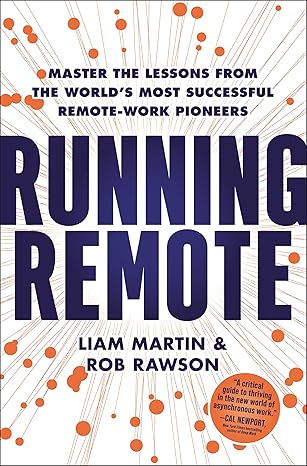
For me, a good culture means trust. If people trust each other, we already have won half the battle. And one cool exercise you can do is the lifeline exercise. I have this from you, the entrepreneur’s organization. That’s why they do this. So, the idea is to share with your team the highs and lows in your life. We also build a tool for this in Upcoach. You enter your birthday, and then it plots your life from zero, where you’re born.
For me, it’s like 47, where I’m now. Then, I can set points at certain ages, like this was a high and a low in my life. For example, the death of my father when I was twelve, for the birth of my daughter, or selling a business, etcetera, and sharing this, because then people take off the mask and show, like, “Hey, this is me.”
So, we asked people to share for 20 minutes. After the sharing is done, we go around the room. People shared experiences. For example, like, I had a drug phase as well in my life. I lost my father when I was young, my girlfriend also cheated on me, etcetera. So people take off the mask and really connect on a deeper level. It’s not just like the surface-level thingy, and it’s really magical. What happens when you do this with people? It brings you so much closer. Once we’ve done this together, it’s easier for you to be criticized by me. You can also criticize me more because it’s just like, you see yourself for the other human being.
Another thing we do is teach people how to communicate nonviolently. Because at the end of the day, everything’s kind of how you communicate with each other. There’s one thing that my mother always said, which is to be hard in the case but soft with the person. For example, I’d never be upset or yell at you if you were always late. I’d take you aside and say, “Hey, Stephan, I really appreciate you. You do really good work here and there. But this late-coming business has to stop for XYz reasons. And I’m here to help you fix why you’re late. But if you can’t fix this, we can’t work together anymore. And I have to go.”
So I’m very soft with the person, but harden the case, telling me, got to fix this or I’ll fire you. But I appreciate you for XYZ, and I’m here to help you solve this and a bunch more things, like how you can communicate better on the communication level. I think these communication issues are the main reasons businesses have problems.
For me, a good culture means trust. If people trust each other, we already have won half the battle.
Once you have this good culture, I would love to introduce the error log that we have for managing what happens for ourselves and all of our businesses. The idea is that we add it to the error log every time we mess up. The error log consists of when it happened, which customer was affected or what happened, who reported it, and who was responsible.
Most importantly, how can we make sure this never happens again? Because the idea is, you’re not going to travel with me if you fuck up. Sorry if you mess up, but you get into real trouble with me if you do not add it to the error log. Because if we have it there and we can talk about this, then we’re like a self-hitting machine, and we just kind of work out the kinks and bugs in our system. But you need to trust to be and to good culture so we can say like, “Hey, screwed up. This is what happened.” In a bad culture, people just sweep it under the rug. This creates way more damage than when you’re transparent about this.
So, what are some of the other unique aspects of how you run and grow businesses besides the error log that you would like to recommend to our listeners?
One thing that works like a charm is Upcoach in the development process. You can also apply ideas from this to other businesses. Or even if you’re not a developer, if you don’t develop a product, or you’re not a dev shopper, it still works. So, at Upcoach, we had the traditional development process before.
The product manager picks which feature we want to work on and designs it, and then we tell you, “Hey, developer, you built this thing. Developer B, you build this feature,” and then the developers take their specs and kind of go into their little dark corner and kind of code it together, and then they bring it back. Then, marketing announces the issue to the customers, and then customer support deals with the issue. So it’s like silo, silo, silo, silo. Everybody’s like a small wheel in the machine.
So we changed this. First, we had everybody to do customer support, and people first hated me. But with AI, you can kind of make it easy to do. It’s not that hard, but we want everybody to understand the pain points that are coming up. People first thought, “Oh, developers, time is way too precious for this. But the idea is that everybody really understands how the product works and the customer pain points because then we can just give them a pool of ideas that people can work on, like very low-spec items.

Then, every developer can pick the one they think is cool to develop, and they have to think way more about specifying the feature. Still, they can do it because now they really understand the product, and then they’re not giving it to marketing to announce it; they announce it in our user community. So, developer, let’s say Stephan has built this, and then he kind of posted in the forum, saying, “Hey guys, I built this new feature. It does XYZ because then they have way more ownership over the product.”
Cause they have to present it as well. But they also get to present because then they get the pat on the back saying, “Hey, dude, thank you for building this.” And they get like the instant feedback of people like, “Yeah, I love it, this is great.” They’re like, “Oh, why didn’t you think about this?” And by doing this, we increased our output by 300%. It’s like absolutely crazy. 300% more product chip. Oh, and another thing, and we also broke it down into small, medium and large issues. And if it’s small, we allocate certain time budgets for it.
So before, developers always gave a spec to it. I think this will take that long, but not just SML. They have a certain amount of time for this, forcing them to make faster decisions. And employee happiness went through the roof. We just surveyed Rethink Culture, and they said they never had such a good rating from a company, and productivity also went through the roof. So everybody was winning from this.
Create this environment where people do the job out of love and not out of fear.
That’s awesome. So, you mentioned an employee satisfaction index. How does that work, and how do you utilize that more generally beyond just this scenario you explained?
So it’s called Rethink Culture Co., and the idea is I create a healthier, more fulfilling workplace culture that goes deep into all the areas of compensation, communication, etc. It’s almost like Maslow‘s Hierarchy of Needs of a company, which really drills down and then rates at different areas. Then, the guy looks at the survey results and suggests what you can implement and improve in your business. What are the biggest pain points? And we had, like, a 93% score. So, it’s super cool to get these insights and know what’s going on with your company.
Yeah, let’s talk about that. So let’s say that somebody has their team take the employee satisfaction assessment, and they score 10% across their team. What do they do next?
I mean, he also gives suggestions like, what is low-hanging fruit? What can you improve, and what’s the most crucial thing to improve? But, you know, I’d always be happy to understand where if I have, like, a certain disease or, like, let’s say you stand in front of the forest and you think there may be a monster in there and you have a flashlight and you’re too scared to turn on the flashlight. But, if you turn on the flashlight, you at least see if it is a monster or not. And you can, like, run away, evade or whatever. Take some action, you know, kind of acting out of love again versus acting out of fear. Like, not going to a doctor is like acting out of fear. Going to the doctor is acting out of love, too. Make positive changes.
Yeah, that makes sense. So what would be something that would be a positive next action for somebody to take if they don’t like the scores that they’re getting for employee happiness? I understand that it depends on each company and their situation, but what’s kind of a foolproof, generic answer of what they can do to improve things, even if you don’t know the specifics?
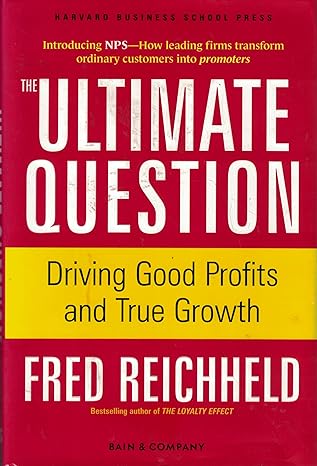
One thing is how we’re running our one-on-ones with our direct reports. We always ask them three questions: First, what’s going really well right now? So they can also boast and give something positive momentum. The second one is what is draining you right now. Because, like, by asking this question, somebody often excavates things that are not going well right now. And it’s good to have a conversation about this. The third one, how would you rate your performance from zero to ten over the last time we talked? Because this gives instant feedback, it creates these instant feedback loops that the person can say, “Oh, I think I performed like a nine out of ten.” And then you can say, like, “Actually, I think you only like a six because of XYZ.” So, it becomes normal to have these feedback loops versus doing the annual review thing, which I think is completely pointless because I have a hard time remembering what happened last month. But so you have, you know, the instant feedback coaching thingy.
Doing this, you connect more. And by asking the questions like, what’s draining you, you can often figure out, like, what’s kind of shitty right now. I guess going back to creating a good culture inside of the business and creating trust. Once the trust is there, people happily share if they know that they can actually tell you what’s not right. Then you can communicate about this and fix it together. I think once people see that you make the changes not only good for your world as the owner of the business but also for taking care of them, then they see that you actually mean it, for example, in NPs. And I really like the NP’s concept.
The book The Ultimate Question by Fred Reichheld. He talks about negative profits now or bad profits. So on bad profits. The idea of a bad profit is, for example, when you are a car rental company, if somebody doesn’t fill up the tank, if it doesn’t bring it back fueled up, they charge them like five times the price of what the gas costs, right? And so it’s profitable, but it also really pisses people off. Once you see that, you can’t take away the things that actually make you money but are hurting customers or employees. If people see that you care for them and not just for your pocket, I think they’ll open up, and positive changes will happen.
So NPS stands for Net Promoter Score. Do you employ that in your companies as well?
Also, ENPS (Employee Net Promoter Score). How likely? Would you recommend somebody to work here at this company, from zero to ten? It’s also very telling if you do this in the onboarding process because it also reveals how good your onboarding process is. So, yeah, there are a million things that you can do to always boil down to create more trust, care for people, do good, and create this environment where people do the job out of love and not out of fear.
I really liked your questions for the one-on-ones. What’s going really well? What’s draining you, and what would you, how would you rate your performance? I’m curious to hear what’s draining you right now, David.
Actually, it’s pretty good right now. Mom was training me. I have, like, family stuff relative, like, it’s going through depression, like, pretty bad. And this is draining because I don’t know how to help. You know, it’s been going on for years. It’s draining because, I’m a very proactive person. Like, you know, I like to not focus on things I can’t impact and just focus on making stuff happen. But there I’m like, I don’t really know how to do that.
Your words program yourself and program others.
That’s kind of draining. Then the other thing that’s draining was like; I used to always just like, put way too much on my plate, you know, as you can see, I have that many businesses,I was like, “Ah, let’s do it all somehow.”
Yeah. And what are you doing differently these days when you were overwhelmed to the point that maybe it was affecting your health, and now, hopefully, you’re not in that place? What did you change in order to get from there to where you are now?
I mean, back in the day, I felt bad going to the gym because I thought like, “Oh, I have so much work to do; I should be in the office.” And now I know that if I take good care of myself, I just make better decisions. And this is, like, what the main thing of a business owner, founder, leader, whatever.
It’s all about making the right decisions and having a clear mind. By the way, that’s another thing that we talk about. Love Not Fear, I guess. Business operating system or the communications thing. Words from NLP (Neuro-linguistic Programming) are very powerful. Your words program yourself and program others.
Do not use words like, “Oh, we have to do this, we must do this, or you have to do this” because you always have to come from a place of fear. “Oh, you must do this.” Versus, like, “We want to do this because it will be really awesome.” It’s coming from a place of love. Or, like, trying is always going to a place of fear. If somebody uses the word try, trying is the most inefficient way not to do something, you know, from coming to a state or visiting you and saying, “Hey, man, I’m coming to town. Can you pick me up from the airport” and say, “I’ll try.”
If I take good care of myself, I just make better decisions.
Like,” don’t worry, I can use Uber. It’s cool.”So whenever somebody is in there, if somebody says, like, “could you please do this?” Like, “yeah, I’ll try.” I know that they’re not. There are questions, or they know they’re there.
I’ll try to get this episode launched. After we record it. I remember some training I got on Nonviolent Communication, which was developed by Marshall Rosenberg, and something he said that the trainers reiterated that was really powerful. I remember. And that “should” is the most violent word in the English language.
Because I’ll say you should.
Yeah, or I should, you know, that’s being violent to myself. So, how do you employ intuition in your business decisions, marketing decisions, and operational decisions? How do you practically incorporate what you get intuitively at the gut level or from a kind of guidance from above?
I do it for myself a lot. Just like how, you know, if something is not working or meant to be, I’m not pushing it. Things should just flow. I used to have the mentality of just running my head through the wall. And to some degree, it works, but it’s just more elegant and with less effort and better results if you figure out how you can surf the wave of whatever is supposed.
To be on impact, the wave of reality. Right. So before recording, we’re talking about a book you’re reading or listening to right now. Do you want to share the title?

The title is Reality Transurfing. It’s by a Russian scientist, and it’s pretty long. It’s like 30-plus hours, but it really reveals how the universe works and how you can realize or achieve the things you want in life.
Even though she’s gonna murder me if she hears it, I’ll share the story anyway, so I met this friend of a friend at a fancy club, and she’s a very attractive woman and also about super blinged out hundred thousand dollar watch, like, all the bling you can wear. And she came across to me. The first thing I thought about her was that she’s, like, a gold digger. Because also the questions that she asked, like, first you sat down looking at my watch and talked about cars, and she’s like, “Oh, what kind of cars do you drive?”
And you were wearing a Rolex.
I was wearing a Rolex at the time, not my garment watch. I just came back from a run, and so I was kind of turned off by it. Like, kind of put her into this category, which is not ideal for treating people. I was like, yeah, I was stretching and putting into a box. Then she also just heard that I was in LA and lived in LA.
“Yeah, I was just in LA. Tiffany invited me,” and I was like, “Why did they invite you? Are you in the jewelry business?” And she’s like, “No, I’m just a good customer.” And she’s, like, super turned off. Right. And though, like, she’s, I guess, gold-digging or whatever. And they asked her,
“So what do you do if you’re not in the jewelry business?” Yeah, “I have my own company,” and She had 150 employees, and almost made a billion dollars in revenue. Like, no joke. I was so mind-blown by looking at something. I could have sworn or bet the farm that this is blue, and then it’s actually green.
It completely blew my mind. And I talked with her. She’s actually super, super cool. She credits her success to that book, her becoming very poor, her upbringing in Russia, and also her not having an ideal background. But she completely crushed it by following this book. And it’s definitely a cool read. Really opened my eyes to a lot of things.

Yeah, because you can create your reality. I mean, you co-create it with the creator, but you have so much more power and influence over this life and all of the reality you’re experiencing than you could imagine.
Yes. So the concept is like, you’re on these life paths, and then you kind of, based on your emotions and actions, serve on these reality paths and then make decision points. Like, either I go positive or negative.
Yeah. So you have a lot of, like, infinite timelines to choose from. And by vibrating at a higher frequency, you get invited to a higher vibration timeline.
Yes. Or lower. If you.
Yeah. If you’re watching horror movies on Netflix every night, you will end up on a lower-vibration timeline. Almost certainly, yes.
Love is the highest vibration you can be in, and fear is the lowest.
I am also kind of going back to vibrations and love not fear. Love is the highest vibration you can be in, and fear is the lowest vibration you can be in. A state of love or a state of fear.
Yeah. And so when you first judged this lady, you had this idea of what she was like based on perceptions, judgments, and past evidence of others in your life. So, one thing I learned from the training video was how to do good interviewing. And it was decades old. It was back in the day; it was like a VHS tape, and it was hundreds and hundreds of dollars for this VHS tape on conducting interviews. It was phenomenally good. One of the pieces of advice from that video was to collect contrary evidence. When you’re interviewing somebody, and you’re starting to form an opinion of them, like maybe this person is a renegade, or maybe this person is not a team player.
Then you look and collect contrary evidence and start asking them for examples, specific examples in their past work where they were a great team player, where they had a really successful outcome, and it was because of their team efforts and not just that person operating on their own as an example, you know? So, if this is a way to improve your interviewing skills, it’s certainly also a way to improve any interpersonal skills. You’re in communication with this lady, and you’re starting to form an opinion. What if you started to collect contrary evidence as this opinion is forming so that you can see that, actually, maybe the opposite is truer than the conclusion you’re already drawing?
Yeah, it was definitely mind-blowing. And it’s a really good tip, actually. Thank you for that.
Awesome. So I know we’re out of time here. I wanted to just wrap this up and get one last wisdom nugget from you. It doesn’t have to be marketing-related. I mean, we didn’t really deep dive into marketing. Clearly, you have a very successful portfolio of businesses that are doing great marketing, but it was just so fascinating to go down the path we went. But what would be one last wisdom nugget with which you’d like to leave our listener?
Marketing is like finding somebody with the same audience you have, but you do something differently.
I guess it would be good to drop some or provide some marketing feedback. What works for me for me is always integration. Marketing is the thing that I love the most. It’s like finding somebody with the same audience you have, but you do something differently, ideally, something that complements each other and kind of finds these integration points with them.
For example, we led research and sales development reps at Task Drive. This is what we have been offering initially. Actually, we did only lead research. If we research leads and people do the cold outbound, if they don’t know how to do proper outbound messages, etc., or they just spam everybody at once, then they would not get results. They come back to us and say like, “Hey, your leads are not good,” even though they are really good.
So we partner with somebody who coaches people on how to do proper outbound. And this just really went hand in hand really well. So, he sends us people to do the research for, and we refer them. You know, he does the coaching, kind of like. So we have these complementary services.
So, look for integration points upstream or downstream. Right. You can have both. Right. So, somebody who’s taking your end product and integrating it into their organization and somebody that you’re integrating into your offering into your organization.
Yep,absolutely. For example, Max W3 Total Cache is a very popular WordPress caching plugin. We came to him, and he is not making any money with the plugin. So we came to him and said like, “Hey, man, how about you build a maxed integration in there because people are already, they download your plugin because they want to make their site faster, and then they could add it to a CDN to make it even faster.” So, we built this integration. Okay, click here. And we auto-create a MaxCDN account. And your site is on the CDN.
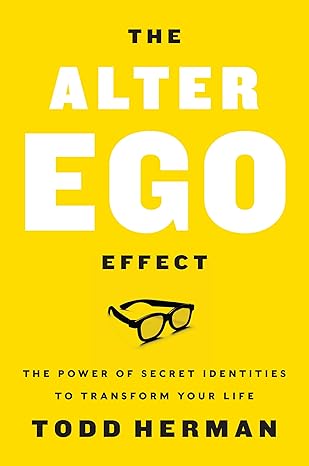
This is one of our best lead channels. We paid like a boatload of affiliate commission for that. So, creating this win-win-win situation, we were winning because we’re getting customers. He’s winning because he’s making affiliate money, and his customers are winning because their side gets faster. And this was like, in my entire career, this was always like the best thing. At Upcoach, we partnered up with Todd Herman, who wrote about The Alter Ego Effect. He’s a very popular coach, and by having him on board, we immediately had trust in the market. Like, “Oh, if Todd’s involved, then this must be good.”
We also went to Mashable and told them, like, “Hey, guys, we give you CDN for free, and we buy a banner on your site in return, all we want is, like, the banner that we pay for. And at the bottom, a badge that says accelerate by MaxCDN.” And by having this posted child, we had this deep trust in the market. When I pitch people, they often say, “Hey, you can stop pitching. You had me at Mashable. It’s cool, you know, because, like them, the trust is given. Same with like having taught you, like the trust is given if you’re a new player in the market. So, I guess that falls with marketing.
Yeah, that’s awesome. And something that just pops into my mind. I don’t know if you’ve done this yet with Upcoach, but if you have partnered with associations of coaches, for example, the International Association of Professional Life Coaches.
Yes.
Yeah. Do some deals with them wherever they offer a discount to their members for the Upcoach platform, and they get a commission. I don’t know; you get additional marketing and promotion from them, do some co-marketing initiatives, etc. It seems like a win-win-win to me.
My emotions always guide me. If something feels good, I lean in.
Yes. That’s great. Actually. Thank you for the tip. And then on love and fear, the final because I just want to drop some marketing spice into your marketing podcast. The final tip, I guess, for love and fear is that my emotions always guide me. If something feels good, I lean in. It’s the right thing to do.
If something doesn’t feel good, I take a step back and think, like, “Okay, why does this not feel good? Is it because it’s the wrong thing, it’s against my values, so it’s just not right? Or is it something that’s outside of my comfort zone?” If it’s outside of my comfort zone, I can convince myself, like, “Okay, let’s switch to love mode and find reasons why I’m doing this. Is this the right thing? And then it’s good. But if it still doesn’t feel good, then it may not be the right thing.” So, I guess the emotions are the barometer to pick.
Yeah. Awesome. Well, thank you so much, David. And if somebody wants to learn from you further, follow you on social media, take your courses, and do all that sort of stuff, where should we send them?
You can check out Managing Happiness or LoveNotFear.com, and if you want to connect and chat, please connect with me on LinkedIn and say that you heard me talk on Marketing Speak, and then I’ll add you. Otherwise, I may not do so because I get too many random requests.
Awesome. So, ManagingHappiness.com and LoveNotFear.com, and then, of course, Upcoach.com.
Upcoach.com, Taskdrive.com and Shortlist.io.
Amazing. Awesome. Well, thank you so much, David. And thank you, listener. Make it a great week. We’ll catch you in the next episode. I’m your host, Stephan Spencer, signing off.
Important Links
Connect with David Henzel
Apps and Tools
Books
Businesses/Organizations
People
Previous Get Yourself Optimized Episode
YouTube Videos
Your Checklist of Actions to Take










About David Henzel
 David Henzel, CEO of LoveNotFear.com, leads a portfolio of businesses with over 500 employees. With 25+ years of experience, he helps individuals make decisions out of love and assists companies in fostering cultures driven by love, not fear. His ManagingHappiness program guides participants toward personal and professional growth.
David Henzel, CEO of LoveNotFear.com, leads a portfolio of businesses with over 500 employees. With 25+ years of experience, he helps individuals make decisions out of love and assists companies in fostering cultures driven by love, not fear. His ManagingHappiness program guides participants toward personal and professional growth.







Leave a Reply